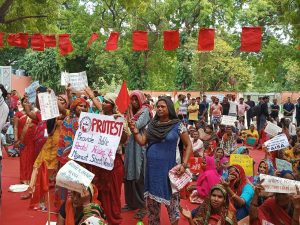Women Own Forested Land In Gujarat But Not Its Wealth
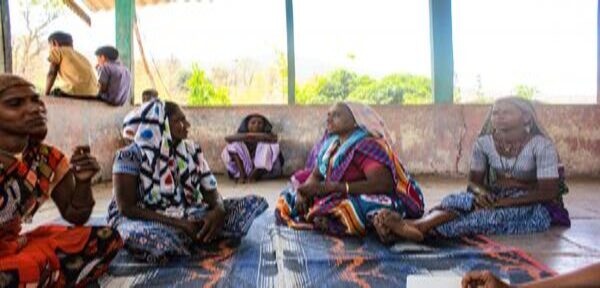
Mangla Hira Ji Thakre (45) and her family are sprawled around the television for their post-dinner ritual of watching a hit soap opera. “Arey, this hero has not changed his shirt in seven days!” jokes Mangla. “Maybe his village does not have enough water for his wife to wash clothes everyday,” her sister-in-law Premila Ben Thakre (45) shoots back.
The family convulses with laughter but Premila Ben’s remark is only half in jest. In her village, Shamgahan, which sits on the edge of Gujarat’s Dang district, water scarcity is a reality. Every year, starting May, the tubewells begin drying up until the monsoon brings respite in July. The rains are also the time when her family and others in the village start sowing paddy—the only season when they practise agriculture. In this district where 95% of the population is Scheduled Tribes, the lack of a perennial irrigation source limits farming opportunities.
However, the lands belonging to the Thakre family and many others in Dang yield other kinds of agricultural produce that bring in a decent income. Premila Ben’s backyard is full of cashew and mango trees; there is also an old mahua [Madhuca longifolia] tree. Some private lands even have commercial trees like teak, rosewood, and khair, a part of the forests that cover 77% of Dang. On private lands these trees are referred to as maliki, derived from the Hindi word ‘malikana’ or ‘proprietary’. In 1984, the Gujarat government laid down rules and processes for the sale of maliki wood: after securing permission from the forest department, land owners can cut a maximum of 10 trees, get it auctioned by the department and take the earnings.
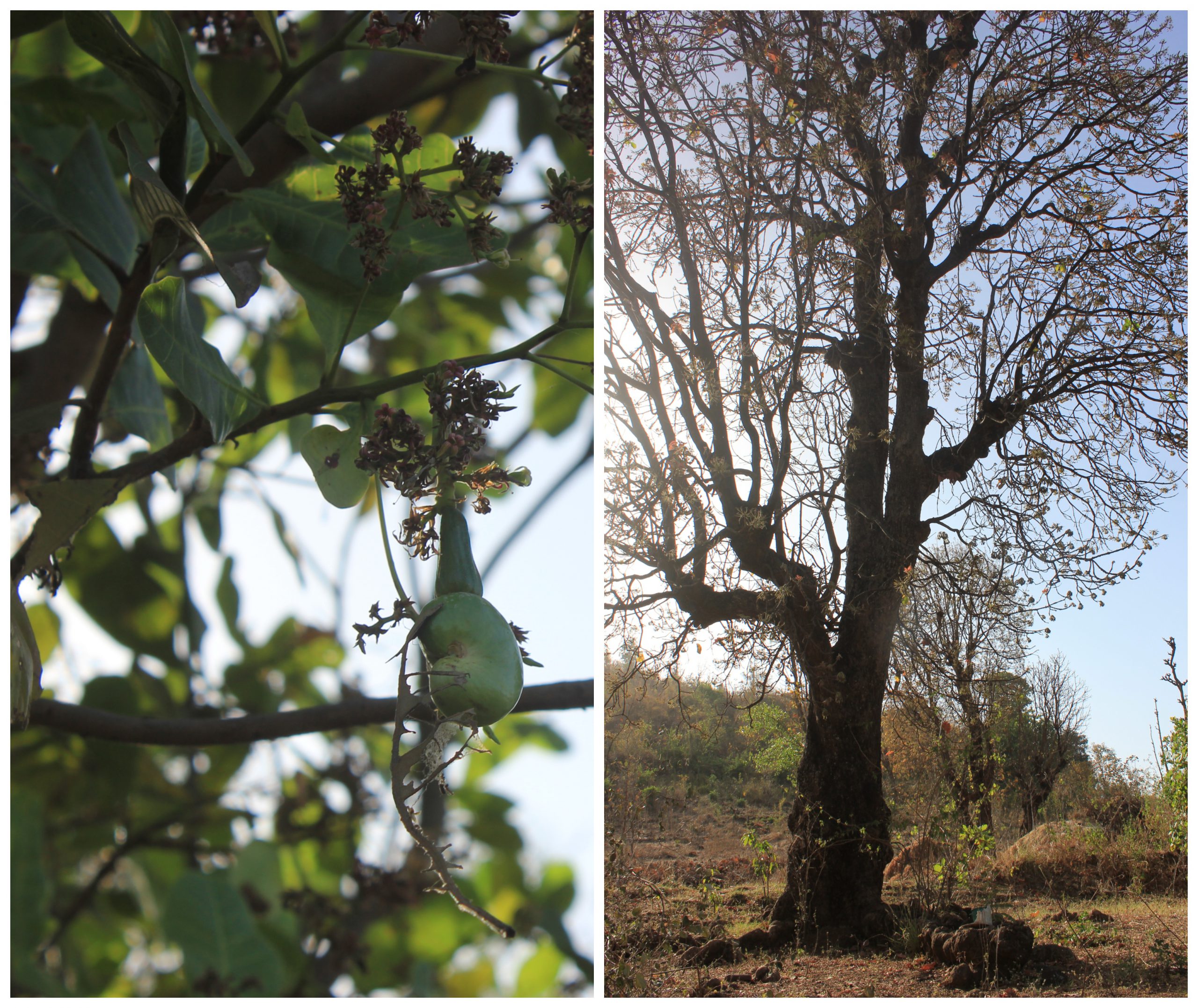
Selling these commercial trees is also another livelihood option for many families. Upto 60% of the 105 households in Dang district had applied for maliki rights until June, 2014, as per Tribal Entrepreneurship: A Case of Adivasis in Dangs, a 2015 paper by Aditi Patil and Aditya Kumar. Selling maliki wood is a popular choice among families looking to fund big expenses such as healthcare, weddings or home construction. In 2011, the district administration allowed maliki teak trees to be used as collateral for loans.
But the earnings and other benefits from maliki trees do not reach Dangi women because these are monopolised by the men in their families. Even though women tend to the trees on their land, spending time and labour on them, the distribution of the revenue generated by the auction of the wood and other products is unequal. This discrimination is socially accepted but not all women have been acquiescent, some are protesting within their families and others are asserting their right in courts.
‘I got less than half the earnings’
“After the forest department auction, women get only a small proportion of the money,” says Premila Ben, busy adding jaggery to the mahua flowers she picked earlier that morning. This concoction will be left to ferment and once it turns to alcohol, it will be sold. While her husband, Ashok Bhai, has not yet auctioned the maliki wood on his land, Premila Ben has witnessed gender discrimination in the division of the sales proceeds in her parents’ home.
“There, even though I am legally one of the owners of land, when my uncles auctioned trees for about ₹2 lakh, I got only ₹5000,” she says. “It all depends on the men; they give whatever amount they deem fit to women after auctions.”
The legal ownership that Premila Ben is referring to is under the Hindu Succession Act, which, in its 2005 amendment, gives sons and daughters equal rights to the inheritance of ancestral property.
Premila Ben’s experience resonated in conversations with other women in Dang too. Rachita Ben Thakre, Premila Ben’s neighbour, is sitting on the porch of the pucca house that she and her husband have just finished building. Her father’s 1-hectare land has about 300-350 trees of teak But after his death, his brother has been taking all the decisions related to the property. “The last time my uncle sold the maliki wood, I got just ₹500. Can you imagine that?” Rachita Ben says. The total earnings from that sale came to over ₹10 lakh.
Premila Ben glances at the boundary wall she shares with her latest project—an under-construction English and Gujarati-medium school. As the lockdown paused the construction work, the income from the ancestral land would have been critical for the family.
The sale of maliki wood is a complex process. Even if the trees grow on private lands, their cutting has to be permitted by the state forest department, as we said earlier. The Gujarat government, under the Saurashtra Felling of Trees (Infliction of Punishment) Act, 1951, put certain trees on privately owned land under the reserved category, to ensure state ‘control and regulation’ of commercial trees.
Under the maliki process, the entire revenue goes to the owner but in two tranches: 25% within three months and the remaining, after certain conditions are met. For every tree cut, three saplings have to be planted, and at one point no more than 10 trees can be cut.
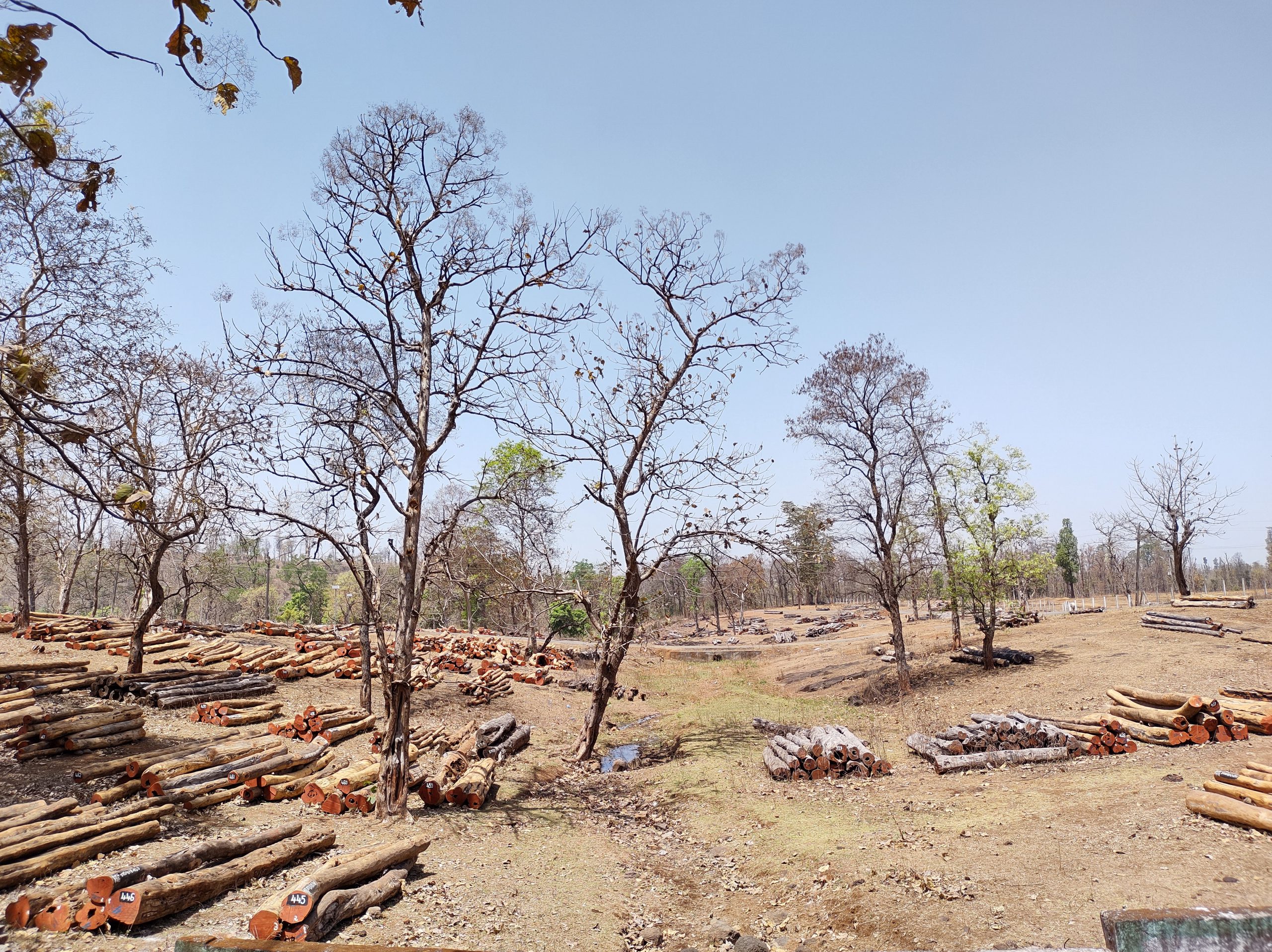
Rachita Ben’s uncle, Naresh Bhai Thakre*, has not been very supportive of her demand for equal revenue. “Every time I talk to him about getting equal rights to and money from maliki wood, he and his family get very angry. We still speak to them but the relationship has really soured,” Rachita Ben says. Naresh Bhai’s reasoning is that he has a large family — he has four sons — and his need is bigger than Rachita Ben’s or her mother’s.
“When government rules clearly say that we [women] have an equal right [over inheritance], why is his family making this decision on the basis of who needs what?” Rachita Ben asks, aware of her rights under the Hindu Succession Act. “My mother and I also got our names added to the land records after my father’s passing. While my uncle didn’t raise objections to this, he let us use less land than him.”
Rachita Ben does not want to drag the family to court so she is trying to settle the dispute within. But Avsi Ben Pawar, 50, from Dang’s Subir division decided to file a case.
Using the law
In his one year of practice, lawyer Sunil Bhai Gamit has already fought six cases of discriminatory malik revenue sharing filed by women. Of these three are currently being heard.
“Court orders have mostly favoured women,” says Gamit who runs a small but efficient office in Ahwa, the district headquarters. “But amongst families, men often see no value in their sisters getting equal rights. Their understanding is very simple—sisters will get married and enjoy the benefits of their husbands’ property. We hear this when we try to get cases settled within families.”
Tara Ben, 62, who lives in Subir has dealt with this prejudice. The only sister amongst three brothers, she was denied her share from the sale of the maliki wood sold by her siblings and their children. “But don’t I have an equal right [to the revenue] when I have joint ownership of land with my brothers as land records clearly reflect?” Tara Ben had asked Gamit when she first walked into his office seeking to file a case against her family. The case is currently being heard.
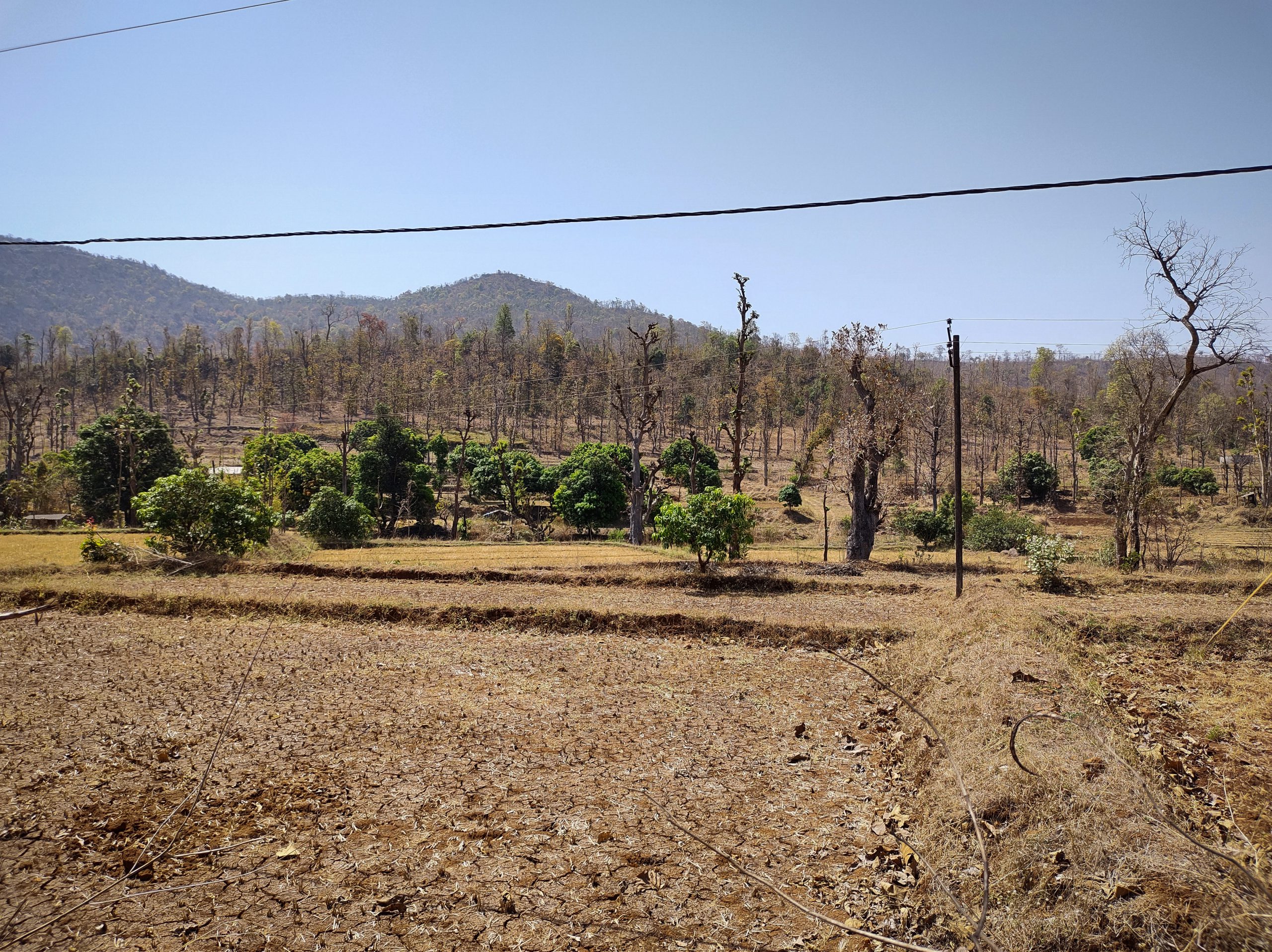
However, not all discrimination is gender-driven as Avsi Ben’s story shows. She and her four older sisters own land adjacent to the Purna Wildlife Sanctuary. Her elder sister has sold the maliki wood from here twice and not shared the revenue with Avsi Ben. “But when they sold it for the third time, I realised that once more I will be prey to this discrimination,” she had told Gamit with whom she filed a case this year.
Even though she co-owns the land, Avsi Ben’s sisters do not include her in any decision related to the property. “I am the youngest and they thought they could get away with not sharing the revenue with me,” she had told Gamit. She realised that the wood had been auctioned off when the first installment of the money from the auction—25% of about ₹8 lakh—was received by her sisters.
“After this, with our help she wrote to the divisional forest officer requesting him to not complete the last installment,” says Gamit.
The underlying problem
About 30 km from Gamit’s office, a group of women from Baradpani voiced an important concern—gender-equitable distribution of maliki revenues is possible only when women have land rights in the first place. In Dang, many do not.
Sitting in the courtyard of a temple against the backdrop of a forested hill in Baradpani, women tell us that not one amongst the ten women in the group has land rights—neither on their husband’s land nor their ancestral land. “Here, lands are only in the name of our sasur [father-in-law] and not our mother-in-law,” says Vaishali Ben Dalvi [35] a resident of Baradpani, who has been associated with the Centre for Social Justice (CSJ) for a decade.
CSJ is one of over 40 NGOs and community-based organisations associated with the Working Group on Women and Land Ownership (WGWLO), a Gujarat-based network that works on women’s land ownership, forest rights, and sustainable agriculture by women farmers.
“Yes, ideally, even our names should be in the 7/12 form,” Martha Ben, a participant in the discussion says. These forms document the present ownership of land and other details about cultivated land — names of cultivators, crop produce and irrigation details. “We don’t get land rights in our maika [father’s home] and we don’t get it in our husband’s home, then how will we have any security?” says Marta Ben. Other women nod in agreement before quickly moving on to a different topic. Land rights for women is not a popular topic of discussion here, not yet.
An additional roadblock here is that most women married into this village come from Maharashtra. “After we got married, our first names were also changed,” says Vaishali Ben. “Our earlier identity documents such as Aadhar record our first name. So, applying for land rights would also require updating our names—isme dikkat hoga [it will be troublesome].”
Gradual adoption of private ownership
There are reasons why there is resistance to Dangi women owning land. “The concept of private ownership is traditionally not ingrained in Dangi populations,” says Avinash Kulkarni, an activist and member of the Adivasi Mahasabha who has been working in Dang since 1992. “It has slowly gained momentum in the past decades with land reforms in Gujarat.”
This is also explained in Harshad Trivedi’s 1993 book Tribal Land Systems: Land Reform Measures and Development of Tribals. Before the British intervention, Dangis practised shifting cultivation or leased land from the rajas, among the few to own lands. The forests later came under the administrative control of the British who controlled these through the local chiefs and rajas. “There were no cases where the land was recorded in the name of a person who was in actual possession of a large section of forest land,” Trivedi writes.
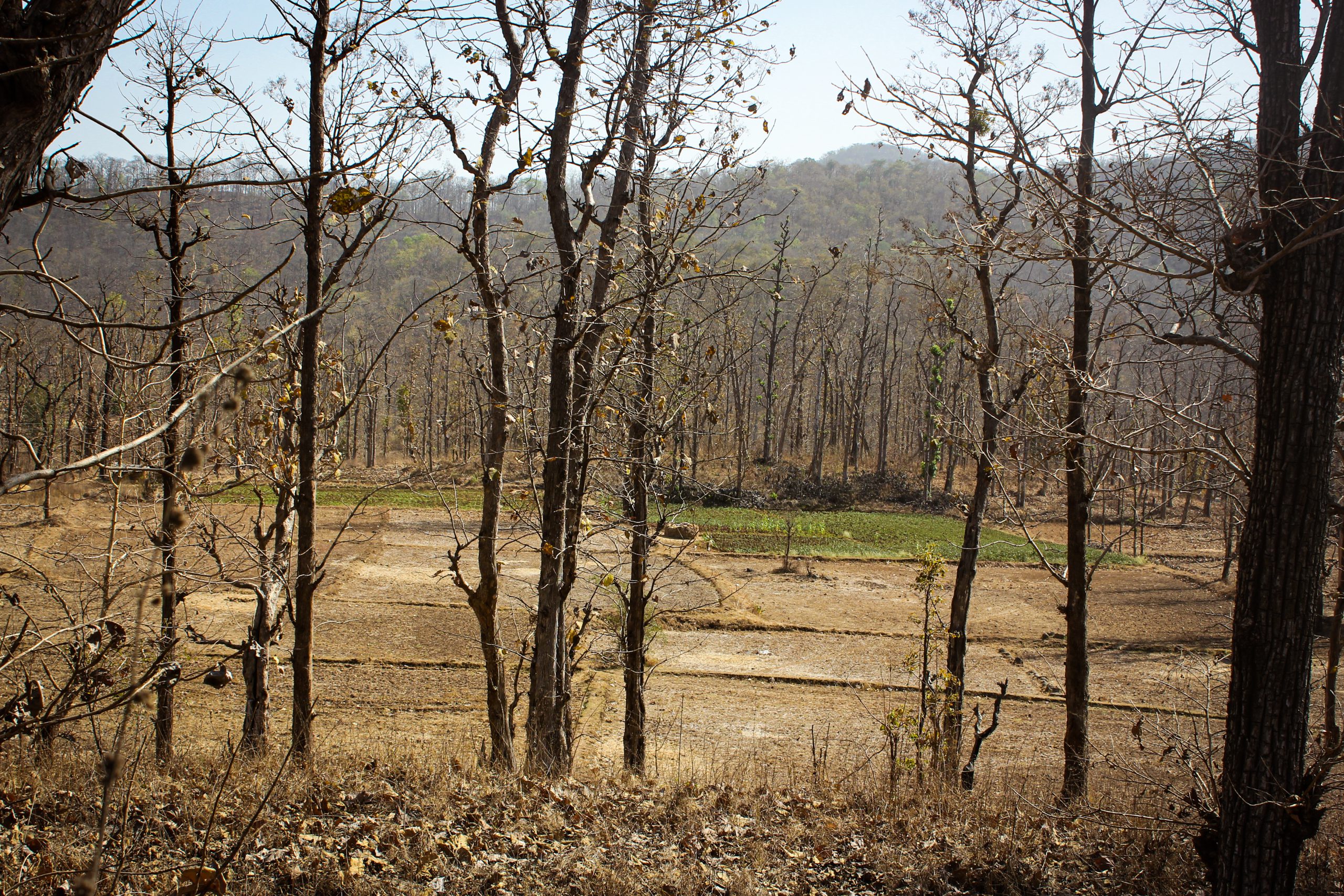
Private ownership of land arrived in Dang as late as 1969-70 with the First Survey Settlement conducted by the Revenue Department. As an attempt to ‘settle’ the rights of Adivasis, some 12,000 individuals were given ownership rights in protected forest areas across the district, as Kankana Trivedi, an independent researcher reported earlier this year. These ownership rights were made in the name of the male heads of households.
“See, only if our sisters tell us that they want equal rights for maliki wood or for land will we [brothers] give,” says Suresh Thakre, 55, who works in a school kitchen in Shamgahan. While Thakre believes that women should have equal land rights, he does not know of the law that allows them this right.
The number of Dangi women who have sought to assert their claim to their ancestral property has been low. Between 2017 and 2019, only 54 women secured land ownership in the district, the second lowest achievement in WGWLO’s work in south Gujarat. One reason for this is also lack of awareness among women about the Hindu Succession Act.
Seasonal migration hampers awareness campaigns
While 88% of Dang’s population is engaged in agriculture, the cultivation is mostly for subsistence, not sale. The soil is not fertile — the undulating hills allow for farming mostly on slopes and terraces that are vulnerable to erosion.
For employment, many residents look to the sugar mills in Surat and Valsad. A 2019 study by Ahmedabad-based Swapath Trust found that 80% of the almost 1000 households surveyed in Dang migrated for work in sugarcane harvesting sectors.
“If you come any other time of the year, you will find our village very empty,” says Vaishali Ben Gader, 28, a resident of Moti Dhabas village, 19 km from Ahwa. Her two brothers have also migrated to Surat: one works in the packaging business, and another in a tube light manufacturing unit. “At least half of our village migrates to work in the sugar mills for six months. Since Holi is around the corner, families have come back to celebrate.” We are seated on an intricately carved teak wood sofa her grandfather had crafted. He is an expert bamboo craftsman and has also designed the teak doors of their house —an art that only a few others practise in this village.
“Since both men and women mostly migrate, we have found it difficult to hold meetings about women’s land ownership rights,” Vaishali Ben admits. She is associated with the Aga Khan Rural Support Programme (AKRSP). In partnership with CSJ, Vaishali Ben had organised a small introductory meeting with women from her village in November 2020. “Women discussed in the meeting how their brothers often did not allow them an equal share of their ancestral land. But we could not do a follow-up meeting, no one was available.”
For Vaishali Ben, this experience came as deja-vu. When the AKRSP attempted to create women self-help groups in Moti Dabhas, it found that these could not be sustained — the women migrated with their husbands to work destinations for half a year. Groups became smaller and the contributions dwindled till the groups simply dispersed.
“There was a point when in our entire SHG it was just me, my mother, and my grandmother,” Vaishali Ben recalls with a laugh.
Moving towards equality
Accessing land rights is an important step for Dangi women to ensure that they receive their fair share of the maliki revenue especially when it is a popular livelihood choice. A 2020 study found that between 1944 to 2019, a total revenue of almost Rs 300 crore was earned by about 20,000 people in the district through the maliki system.
However, for women to get their due share of this revenue it is important for greater awareness of land ownership rights. Some structural steps can also make a difference, suggests advocate Gamit.
“For the disbursement of money post the auction, the district forest officer (DFO) signs an affidavit by one of the downers of the maliki wood. The affidavit states the number of co-owners and says that for the purpose of auctioning, the undersigned will be receiving it on everyone’s behalf. The undersigned is always a man. But a small change here can make a difference,” he says. “The DFO can ensure at this point that the affidavit is signed by all the co-owners and states that the amount will be distributed equally between them. So then, even women would have to sign the document before the auction and negotiate their share with the men.”
*Names changed to protect identity
[This story is produced as part of the WGWLO-BehanBox reporting fellowship on women’s land, forest and farming rights in Gujarat]
We believe everyone deserves equal access to accurate news. Support from our readers enables us to keep our journalism open and free for everyone, all over the world.


